Delta Air Lines’ business rewards program, called SkyBonus, operates in addition to the SkyMiles program to incentivize employers to book employees. SkyBonus is scalable and can be used by corporate travel departments, but are also available to anyone with a small business who sends employees (and self) on occasional business jaunts.
Related: I also reviewed American Airlines’ rendition of business flyer rewards, called Business Extra.
Like Business Extra, SkyBonus rewards come much slower relative to a single SkyMiles account. But when you start adding up air travel spending across a company with just a few employees — much less dozens or hundreds — SkyBonus could net flight awards, elite status and Sky Club access at a rate much faster than SkyMiles alone ever could.
Breaking It Down:
Who Can Enroll In Delta SkyBonus
Small and mid-sized companies are allowed to participate in SkyBonus. In addition to a minimum of $5,000 in annual expenditures on Delta and/or its partners, five unique employees must conduct eligible travel every calendar year to remain in the program.
Online registrants are prompted to input the business name, Tax ID and address.
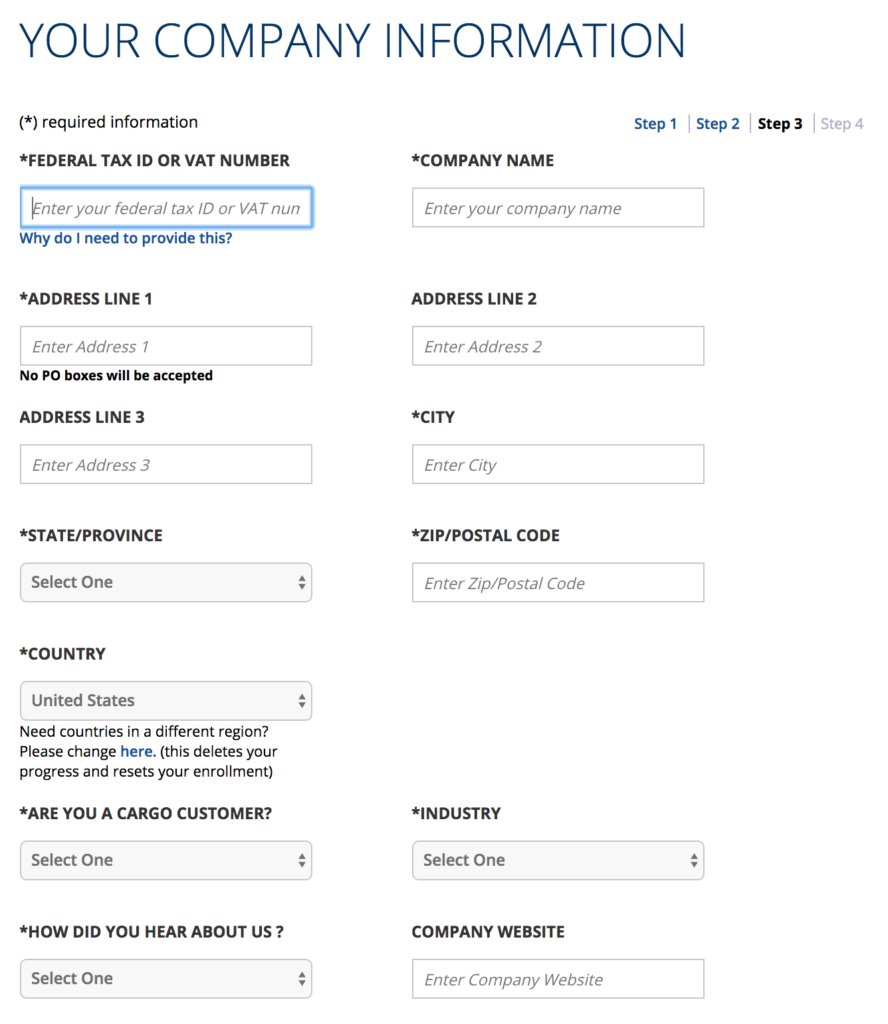
Contact information for a primary administrator is also required for enrollment.
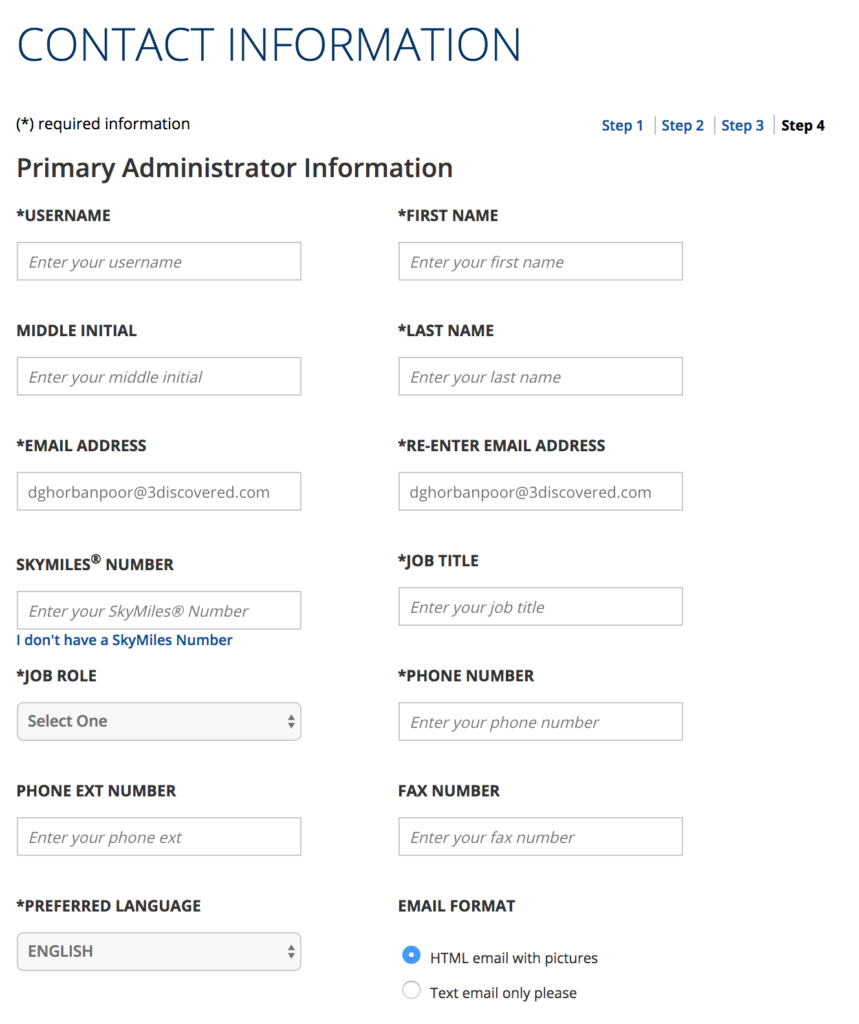
Earning Delta SkyBonus Points
SkyBonus points earning is calculated via a multiplier for each dollar spent on eligible fares, not counting taxes and fees. The multiplier varies depending upon both the fare class the flight is booked into and whether travel is to or from specified Delta hubs.

I presume Delta has introduced these different earning models to further incentivize business travelers in cities where Delta isn’t the only reasonably nonstop choice. Those doing businesses into or out of Hartsfield-Jackson Atlanta International Airport (ATL), Cincinnati/Northern Kentucky International Airport (CVG), Detroit Metropolitan Airport (DTW), Minneapolis-Saint Paul International Airport (MSP) or Salt Lake City International Airport (SLC) may feel subbed by this earning structure.
The three tiers for earning are based on fare class and fare bucket.
Level 1 — All Delta One, business class, first class, full fare economy, premium economy and Delta Premium Select tickets.
Level 2 — Most remaining Delta economy fares, including discounted economy fares on Delta partners including Aeromexico, Air France, Alitalia and KLM.
Level 3 — Delta’s Basic Economy fares and deeply discounted economy fares on partner airlines Aeromexico, Air France, Alitalia and KLM.
Things get complicated with respect to “discounted” and “deeply discounted fares”. When in doubt, reference this program page to view exactly which fare buckets on Delta and its partners fall into what level.
Identifying Fare Bucket
When searching for flights on delta.com, the fare bucket is listed above the price and below the class of service within each populated flight result:

Tickets issued on Air France, KLM and Alitalia ticket stock must be issued and originate in North America and contain a Transatlantic flight segment to earn SkyBonus points. Tickets issued on Aeromexico ticket stock must be issued in North America for nonstop travel between the U.S. and Mexico. Flights marketed by Delta but operated by other codeshare partners may also earn SkyBonus points for tickets if issued on Delta ticket stock.
When booking flights online at delta.com, employees (or whoever is booking the flights) must add the company’s SkyBonus number under the “Contact Information” section to ensure points earning.
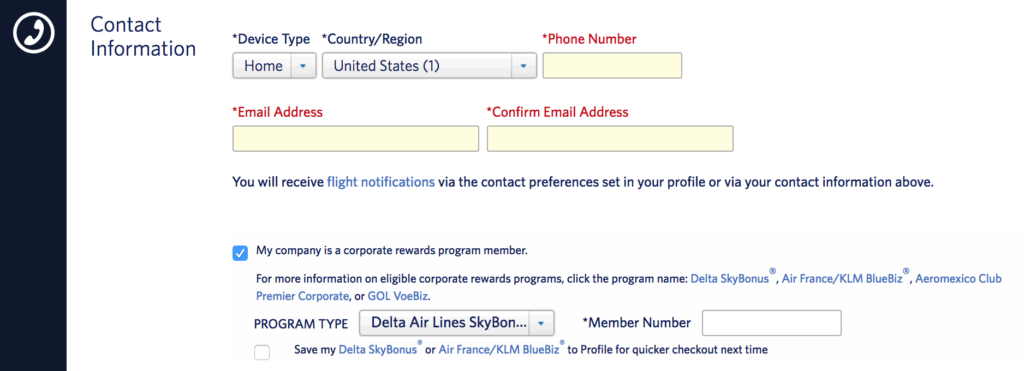
Businesses with elite tier status, “SkyBonus Elite,” earn 10% more points for every flight on top of normal points accumulation. After earning 2,000,000 points in a calendar year, equivalent to ~$67,000 of expenditures on “Level 1” non-restricted hub flights, businesses qualify for SkyBonus Elite status.
Redeeming Delta SkyBonus Points
SkyBonus points can be redeemed not only for flight awards but also for inflight beverages, headsets, upgrades, SkyMiles Silver Medallion Status and Delta Sky Club benefits.
Flight Awards
For flight redemptions, SkyBonus offers two different types of award certificates, regular and enhanced availability. There is no option to redeem half points for a one-way ticket. Booking a one-way required using a full SkyBonus certificate.
The flight redemption process is not as streamlined as it is with SkyMiles awards given that there is a two-step process which first requires redeeming points for a corresponding certificate for the desired award, and then applying the certificate to an available flight either online at delta.com/redeem or over the phone.
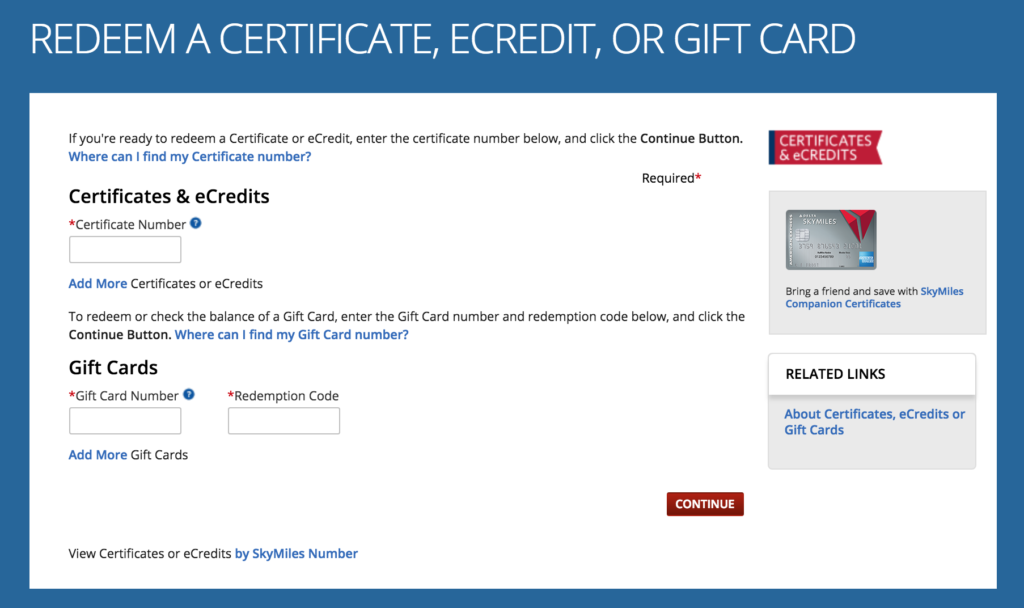
Regular awards are represented in Delta’s inventory as the ‘T’ fare bucket, which can be filtered on Delta.com using “Search By Fare Class” in the “Advanced Search” page. A roundtrip economy class flight within North America costs 90,000 SkyBonus points, which would require $3,000 in “Level 1” or $15,000 in “Level 2” non-restricted hub flight expenditures to earn. The same flight in domestic first class costs 250,000 points.

A round-trip regular award certificate between North America and Europe costs 175,000 points in economy class and 575,000 points in business class on both Delta and Air France, KLM, Alitalia and Virgin Atlantic flights. 575,000 points are earned after around $19,000 in “Level 1” or around $95,000 in “Level 2” non-restricted hub flight expenditures.
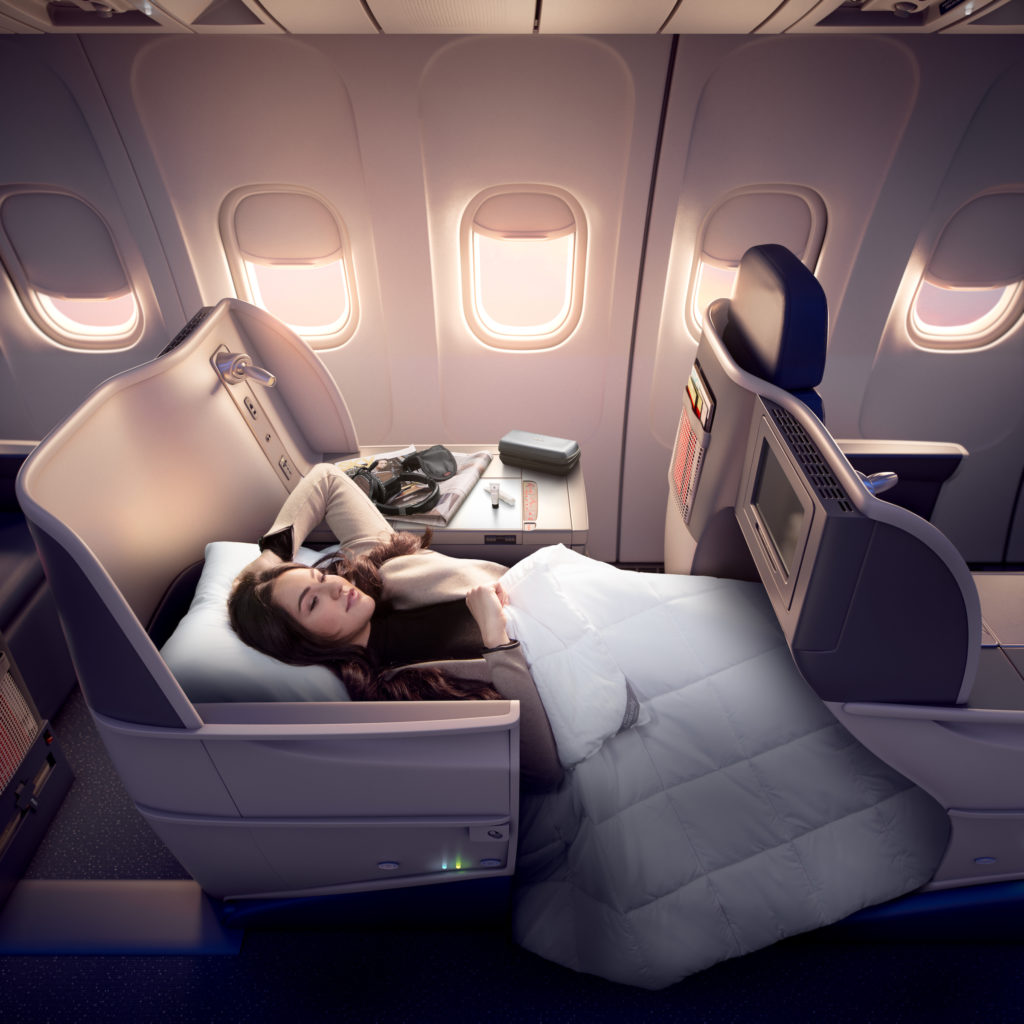
Delta One Business Class. Image by Delta Air Lines.
Enhanced Availability awards are represented in Delta’s inventory by the ‘Q’ fare bucket. A round-trip economy itinerary within North America costs 210,000 points, which would require $7,000 in “Level 1” and $35,000 in “Level 2” non-hub flight expenditures to earn. The same trip in domestic first class (excluding transcontinental flights) costs 415,000 points for an Enhanced Availability award.
A round-trip Enhanced Availability award flight between North America and Europe costs 425,000 points in economy class and 900,000 points in business class or first class on not only Delta flights but also Air France, KLM, Alitalia and Virgin Atlantic. 900,000 points are earned after spending $30,000 in “Level 1” or a whopping $150,000 in “Level 2” non-restricted hub eligible flights.
Upgrades
One-way upgrades within the U.S. and Canada on economy class fares cost 12,500 points to upgrade to comfort plus, 25,000 points to upgrade to Delta One or first class from a full fare ticket and 50,000 points to upgrade to Delta One or first class from non-full fare select tickets.
Between U.S. and Europe, one-way upgrades from economy class tickets cost 70,000 points to upgrade to comfort plus, 100,000 points to upgrade to Premium Select and 140,000 points to upgrade to Delta One from full fare tickets. Upgrades are only available on Delta and only on select routes.
SkyMiles Silver Medallion Status
120,000 SkyBonus points are enough to gift yourself or someone in your company SkyMiles Silver Medallion status. This is Delta’s entry-level elite status tier, which offers an occasional complimentary upgrade, an elite mileage earning bonus, complimentary preferred seat selection, priority boarding and one free checked bag.
Sky Club Benefits
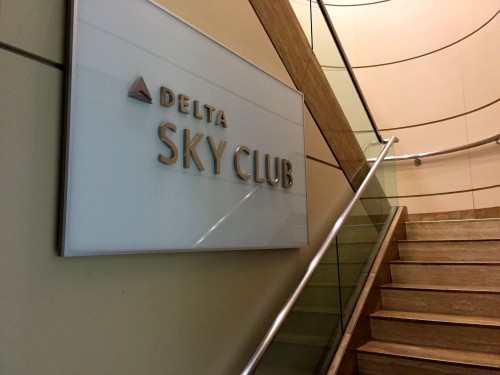
Delta Sky Club day passes can be redeemed in packages of 5 for 85,000 points. An annual individual membership, which provides unlimited access to the member (up to two guests may also enter for $29 each), costs $495 but is also available for 145,000 SkyBonus points.
An annual executive membership, which provides unlimited access to the member as well as up to two guests per visit, costs $745 or 225,000 SkyBonus points. $7,500 in level one flight expenditures multiplied at the 30x level would earn enough points for an executive membership, representing close to a 10% return in value.
In Flight Benefits
Beverage and headset coupons can be redeemed in packages of 10 each for 10,000 SkyBonus points. As the lowest cost redemption level in the program, business owners may earn some goodwill amongst employees by covering in-flight drinks on that annual company trip.
The Upshot
Delta’s SkyBonus program handsomely rewards business travel in full fare economy class and premium cabins.
Outside of travel to and from the restricted airports, eligible business owners located in hubs and focus cities where Delta encounters more competition such as New York (JFK), Laguardia Airport (LGA), Los Angeles International Airport (LAX), Seattle-Tacoma International Airport (SEA) and Logan International Airport (BOS), can extract significant value from simply joining SkyBonus and adding their number to future employee flight bookings.
Even for those business owners who aren’t able to maximize earning opportunities to realize a return value of 10% or more, there’s nothing to lose and only value to gain through participation in airline business rewards programs such as SkyBonus.
The responses below are not provided or commissioned by the bank advertiser. Responses have not been reviewed, approved or otherwise endorsed by the bank advertiser. It is not the bank advertiser's responsibility to ensure all posts and/or questions are answered.